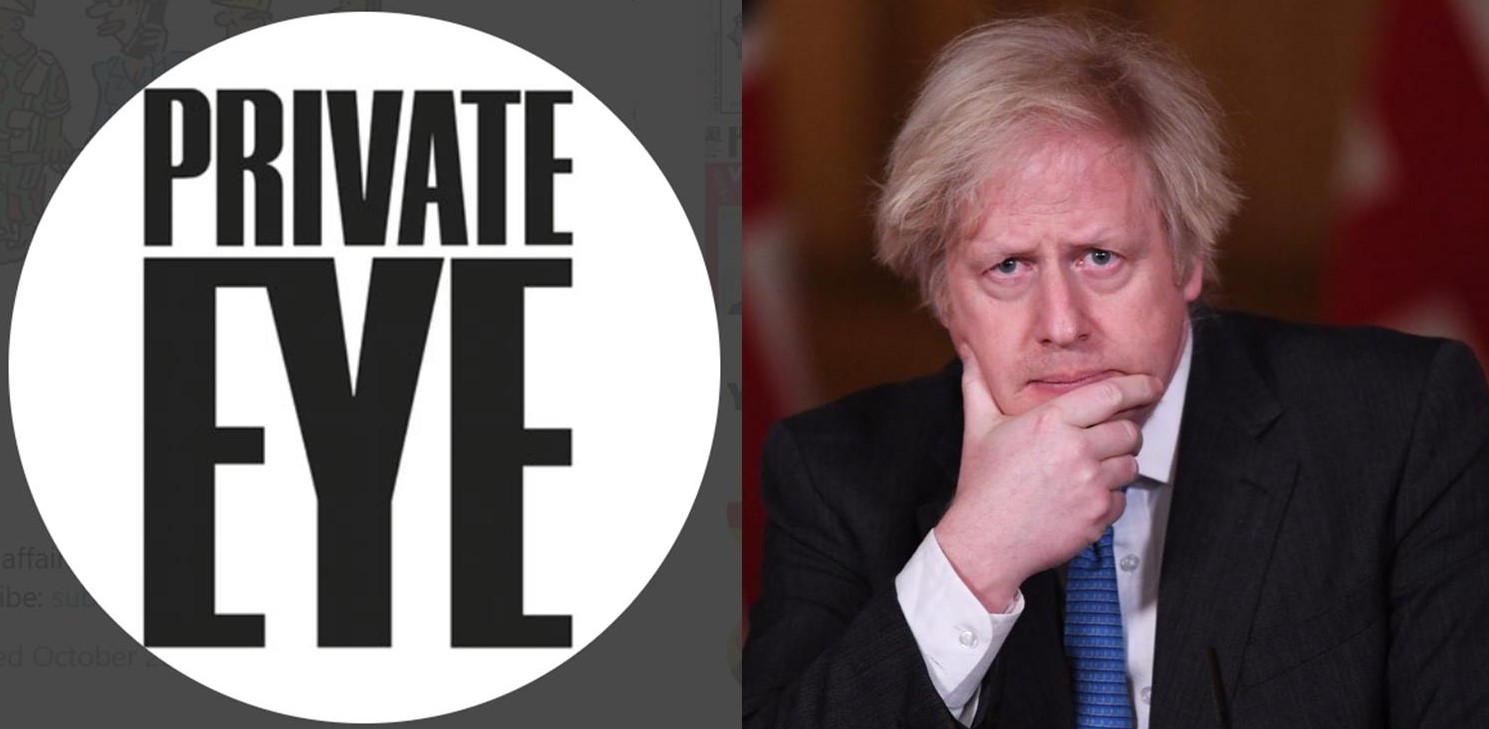The prime minister of the United Kingdom has a county court judgement (CCJ) against him for failing to pay a debt of £535.
Private Eye exclusively revealed that Boris Johnson was issued with the judgement for unpaid debt last October, “and six months on, it still hasn’t been paid.”
A CCJ debt must be at least £600 for bailiffs to arrive at a property and recover items to the value, the BBC’s deputy political editor Vicki Young told BBC Two’s Politics Live this afternoon.
Young called the court order naming Johnson “extraordinary” and added that there remains “a lot we don’t know about this and Downing Street haven’t been able to enlighten us any further”.
The most obvious questions are who the PM owes the money to and what is it for given the court records do not state who the creditor is, or the nature of the debt owed.
Documents from the database of county court judgments for England and Wales show the “unsatisfied record” (ie. still unpaid) for case number 161MC959 against Boris Johnson whose address is given as 10 Downing Street, London SW12 2AA and the date of judgment October 26 2020.
Courts do not rule on cases unless they have given the person a chance to pay the debt, which suggests the PM may have ignored letters from the court about the case.
Debt has ‘nothing to do’ with Downing Street flat, insists No 10
The revelation follows weeks of controversy around the refurbishment of Johnson’s flat in Downing Street which is being investigated by the Electoral Commission to determine if any donations were properly declared.
Number 10 has said the CCJ has “nothing to do” with the controversial refurbishment of Johnson’s flat, according to the Telegraph, which quotes the PM’s spokesperson, who said they are “looking into the issue” reported by Private Eye.
They added: “”I can confirm it is nothing to do with the refurbishment of the Downing Street estate, where all such bills have been duly paid either by the Government or the Prime Minister personally.”
When questioned if Johnson, the First Lord of the Treasury, can be trusted with the nation’s finances given he cannot mange his own, the spokesperson said: “I think our record on the economy is very clear.”
The Guardian is reporting a Downing Street spokesperson has said: “An application will be made for an order to set aside the default judgment, to strike out the claim and for a declaration that the claim is totally without merit.”
In 2018, 12 months before he became prime minister, Johnson gave a “full and unreserved apology” to the Commons for the late declaration of more than £52,000 income. The apology followed an investigation by the parliamentary standards commissioner, Kathryn Stone, whose report “suggested a lack of attention to the house’s requirements [for declaring income], rather than an inadvertent error”.
Stone is currently investigating whether Johnson correctly entered £15,000 worth of accommodation provided by the founder of Carphone Warehouse, David Ross for the PM’s winter Caribbean holiday, taken with his fiancée Carrie Symonds, 17 months ago.
‘There can’t be one rule for the PM and another for everyone else,’ says Lammy
Commenting on the CCJ, the shadow Lord Chancellor and shadow justice secretary David Lammy tweeted: “If this was a single parent in Tottenham getting hammered by Universal Credit, screwed by austerity & kicked in the balls by the Hostile Environment, they would not get off as lightly as @BorisJohnson.”
Lammy, the Labour MP for Tottenham, added: “There can’t be one rule for the Prime Minister and another for everyone else.”
Many posters on social media are commenting how their career would be impacted with a CCJ against them while others remind how a CCJ can affect a person’s credit rating, possibly preventing them from getting a mortgage or loans.
Debts incurring a CCJ remain on a person’s credit record for six years, unless they are paid within 30 days of the order.




